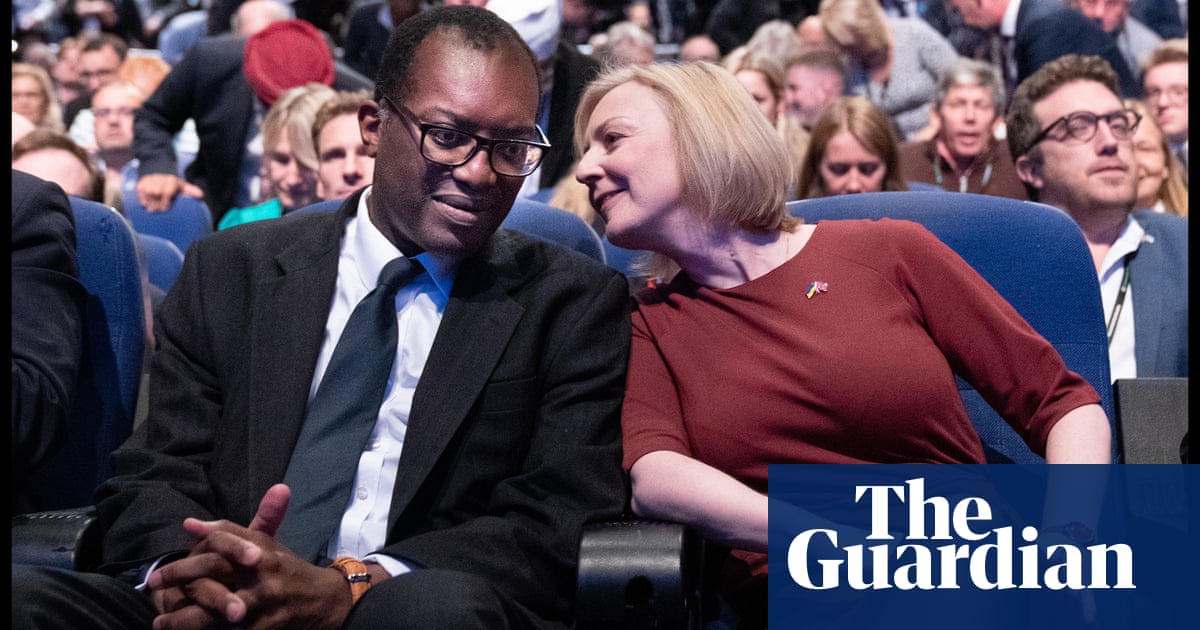
The governor of the Bank of England has indicated it was left blindsided by Kwasi Kwarteng’s disastrous mini-budget, describing an “extraordinary process” in which there was “no formal communication” before the chancellor unveiled his measures.
In candid evidence to the Lords economic affairs committee, Andrew Bailey said Kwarteng had broken with tradition by failing to brief the central bank, suggesting that even Treasury officials were not fully aware of his plans a day before the event.
“I’m afraid there was parts of it we had no idea what was in it,” Bailey said. Asked by the Lords whether this suggested a slapdash approach from the government when making major changes to tax and spending policy, he said: “There was no formal communication of the sort we normally have. It was a quite extraordinary process in that sense.
“I didn’t say to the chancellor ‘you have to tell me what’s in this fiscal statement’, because, frankly, I would never say that to a chancellor. But then I don’t need to say that in normal circumstances. We have channels of communication.”
He said it had been an “extraordinary time”, as the mini-budget came in the same week as the state funeral of Queen Elizabeth II.
Financial markets were plunged into turmoil after the former chancellor unveiled more than £45bn of unfunded tax cuts largely directed at higher earners, sending the pound plummeting to its lowest level in history, and government borrowing costs surging to the highest rate since the 2008 financial crisis.
The Bank was then forced into an emergency intervention to buy up to £65bn of UK government bonds to halt a run on pension funds and wider financial instability.
Responding to questions from Mervyn King, who was the Bank’s governor during the 2008 financial crisis, Bailey suggested even Treasury officials were not fully informed of Kwarteng’s plans a day before the mini-budget.
“I don’t think Treasury officials were clear what was going to be in it,” he said.
Bailey said the Bank was not informed of Kwarteng’s plan to scrap the 45p additional rate of income tax, which he said was one of two reasons City bankers had given him when explaining the subsequent financial market meltdown. The other was Kwarteng’s decision to sideline the Office for Budget Responsibility.
“What people said to me was they were surprised, substantially surprised, that it was done at that point in time in that context in that situation.
“And people in the markets said those two things had quite a big impact on them in terms of their reaction to it. And their judgment of the direction of UK economic policy and fiscal policy making at that time, which was obviously very negative.”
King said it was normal for a Treasury official to attend meetings of the Bank’s rate-setting monetary policy committee, and they would typically provide guidance to the central bank before major announcements on tax and spending.
King said the MPC had met a day before the mini-budget, and asked whether a Treasury official was present and had provided a broad update on Kwarteng’s tax and spending plans and their economic consequences. Bailey said the official had “told us what they understood to be the situation,” but suggested they did not have a full picture.
Bailey rejected suggestions that the Bank’s time-limited intervention in the bond market after the mini-budget “brought down” the Truss government. “We did not bring the government down. We did a limited operation for financial stability purposes and we did exactly the right thing and ended it promptly.”












